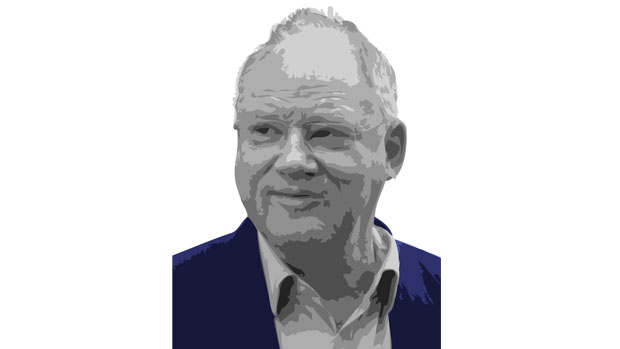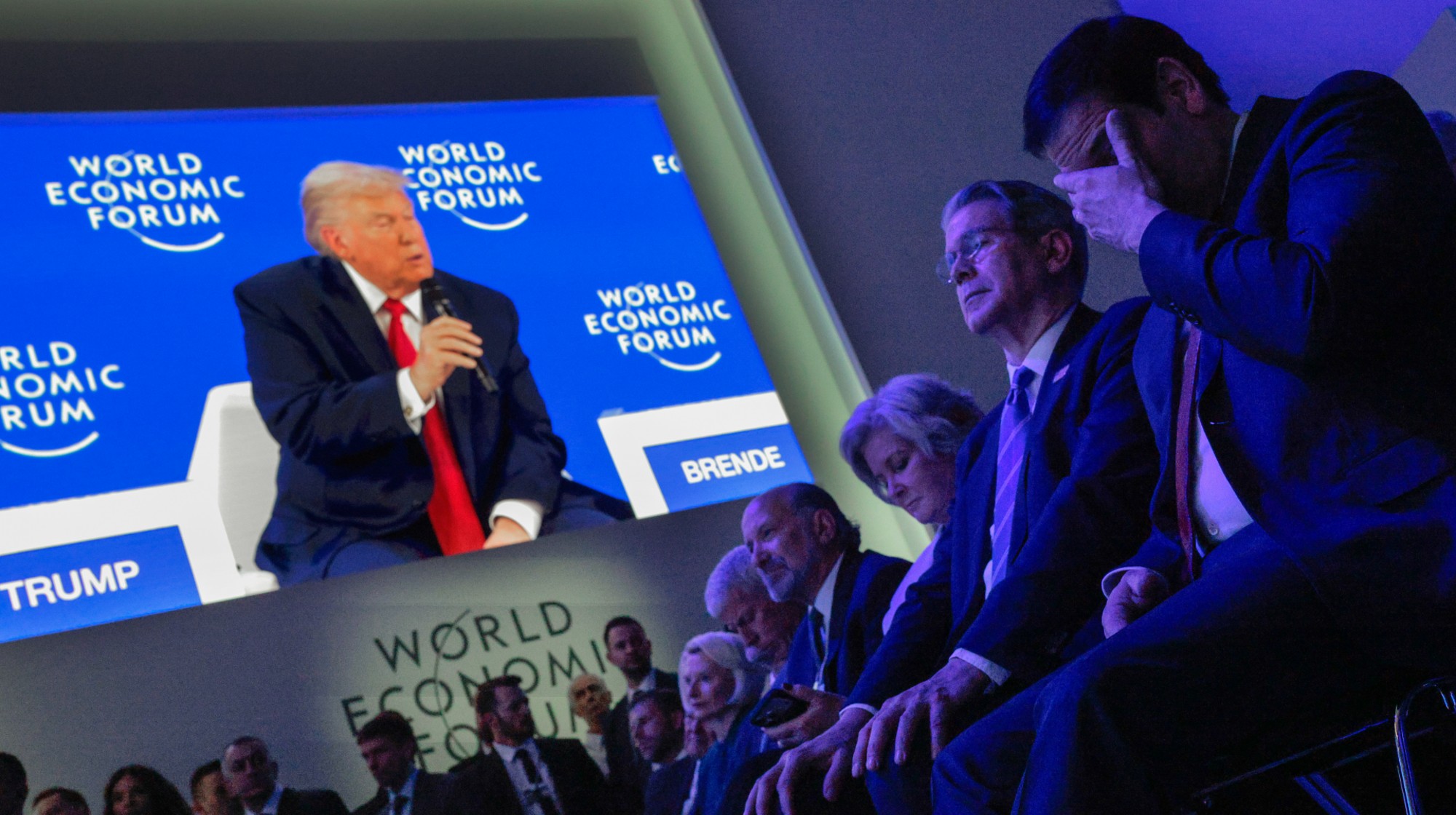Nato summit: judgment day for 'Dick Swiveller' Cameron
Cameron and Obama have a lot of persuading to do as the West faces IS and Ukraine crises

A free daily email with the biggest news stories of the day – and the best features from TheWeek.com
You are now subscribed
Your newsletter sign-up was successful
Increasingly Barack Obama sounds as if he is auditioning for the role of Hamlet the Dane, prince of procrastinators. As he arrived in Newport for Nato’s 65th major summit, he still seemed undecided about what exactly to do about Ukraine, the Islamic State and the future of the Nato alliance.
Like Hamlet, he ruminates and philosophises a lot, all with the expressed intent of “not doing stupid stuff”, which at times looks like reluctance to do stuff at all. Today we have news from Fox News - make of it what you will - that the US President received detailed briefings from the Pentagon about the true nature and power of IS over a year ago, yet feigned ignorance over this until Mosul fell this summer.
If Obama is aiming to play Hamlet, Prime Minister Cameron is auditioning for Dickens’s Dick Swiveller, ducking and diving, dodging and bodging, going for one course of action and then another. We were told Britain would use all its means of diplomacy and "military prowess" to tackle IS, yet we wouldn’t be using airpower to bomb nor be putting "boots on the ground".
The Week
Escape your echo chamber. Get the facts behind the news, plus analysis from multiple perspectives.

Sign up for The Week's Free Newsletters
From our morning news briefing to a weekly Good News Newsletter, get the best of The Week delivered directly to your inbox.
From our morning news briefing to a weekly Good News Newsletter, get the best of The Week delivered directly to your inbox.
Speaking to the Today programme this morning, Cameron said the UK might join air operations alongside the Americans. His Foreign Secretary, Philip Hammond, has briefed that the SAS could get involved in the hunt for the British-born IS jihadi who beheaded James Foley and Steven Sotloff. The admission is strange in that it comes from someone who until last month was Defence Secretary, and, as we all know, the MoD never speculates on current special forces operations.
So, what is the present use of British military prowess, according to the prime minister? He told us that one RAF C-130 transport plane has just been delivering a load of flak jackets to the Kurdish regional capital of Irbil – an exercise in gestural diplomacy, if ever there was one.
Cameron is now the victim of his own spin on anything from the near-secession of Scotland to relations with Europe and allies in the Nato club. He doesn’t do military, and he doesn’t want to be seen to do anything that could be termed intervention, or pro-active towards Europe. Among his foes, Vladmir Putin, Abu Bakr al-Baghdadi and Ayman al-Zawahiri (who has just declared al-Qaeda’s jihad in India seem to be in the second rank to Boris, Farage and Alex Salmond.
Now the crises and challenges facing Cameron and his allies have come together in the underwhelming ambience of a Nato summit. A few months back the agenda had been designed to focus on the difficult extraction of Nato forces from Afghanistan – today even more difficult – and funding for defence and security.
A free daily email with the biggest news stories of the day – and the best features from TheWeek.com
Now Ukraine and IS have shot to the top of the agenda. IS poses both an external and internal threat to all the major members. A short-term plan is needed to contain its advance, and disrupt the terror narrative of the video executions of British and American citizens. A long-term plan is needed to prepare Iraqi and Kurdish forces to begin writing down the IS army and command.
Almost certainly this will require getting down and dirty, coming to some sort of arrangement with Assad’s regime in Syria and Hezbollah and Iran. Not easy, and the least said by media-megaphone diplomacy - to which both Obama and Cameron seem addicted - the better.
The questions posed by Putin and Ukraine demand equally a longer and short-term plan. Huffing and puffing, talk of Nato exercises in Poland and the Baltic and a 4,000-strong rapid deployment brigade, do little to mitigate the effects of Putin’s hybrid war in eastern Ukraine. By the use of local insurrection, protest and the insertion of ‘little green men’ - Russian soldiers in plain uniforms without insignia - Putin is slowly detaching the regions of Luhansk, Donetsk and the port city of Mariupol.
The armies of the government of Kiev can do little about this. Once they apply pressure, Russia brings in the artillery – quite literally. Threats of tightening sanctions on Moscow bring counter-threats from Putin to cancel the Conventional Forces (CFE) treaty and the agreements on reducing strategic nuclear arsenals. So far, in the battle of wills and words, Putin has the initiative.
The best course for Nato is to tidy up its act in eastern Europe and state what it will and will not do under the terms of the Founding Act of the Nato-Russian agreement of 1997.
Russia sees Ukraine and the Baltics as part of its sphere of influence and Nato as an interloper. There is already some kind of cyber-war going on over the Baltics, to which Nato will find it hard to respond given the Russian stake in the local economies, and despite Obama’s brave words of solidarity in Estonia yesterday.
Finally, there is the issue of Nato itself and its prolonged, bureaucratic and unspectacular existential crisis. What is the alliance now really for?
The question has been there since the end of the Cold War. Then it was the defence and security of the north Atlantic region against the real threat of the Soviet Union and the Warsaw pact. Since 1989 it has become a jack of all trades for mounting multi-national military operations, which it has done on more than half a dozen important occasions, executing none particularly well.
None of the four principal leaders of the Nato nations - Obama, Cameron, Merkel and Hollande - seem to fully to appreciate the nature of the employment of force in managing the security of a globalised world.
On Ukraine, Merkel has said "anything but force". This has been less than helpful because the efficacy and potential of force is often latent more than actual and kinetic. This has been recognised by strategic thinkers from Sun-Tzu and Clausewitz to our own Gen Rupert Smith in his ground-breaking ‘Utility of Force’.
Using a Maoist formula, Smith described from his experiences the new "wars among the people". And that is what we have got both with the IS terror campaign, and Putin’s hybrid war in Crimea and Ukraine – where diplomacy and threat are used as military levers.
Has Nato the will, capacity or funding to meet these new challenges? Only four members – the United States, the UK, Estonia and Greece - spend two per cent of GDP or above on defence. In the UK this is actually going down – and the defence cuts brought in by Cameron’s coalition have reduced our combat power by more than one-third in four years.
So Cameron, the former PR man, and Obama, the Harvard-educated lawyer, have a lot of persuading to do over the next 36 hours to make Nato fit for the purpose of our day, rather than a coalition of the unable and unwilling, the disillusioned and uninterested.
is a writer on Western defence issues and Italian current affairs. He has worked for the Corriere della Sera in Milan, covered the Falklands invasion for BBC Radio, and worked as defence correspondent for The Daily Telegraph. His books include The Inner Sea: the Mediterranean and its People.
-
 The EU’s war on fast fashion
The EU’s war on fast fashionIn the Spotlight Bloc launches investigation into Shein over sale of weapons and ‘childlike’ sex dolls, alongside efforts to tax e-commerce giants and combat textile waste
-
 How to Get to Heaven from Belfast: a ‘highly entertaining ride’
How to Get to Heaven from Belfast: a ‘highly entertaining ride’The Week Recommends Mystery-comedy from the creator of Derry Girls should be ‘your new binge-watch’
-
 The 8 best TV shows of the 1960s
The 8 best TV shows of the 1960sThe standout shows of this decade take viewers from outer space to the Wild West
-
 Epstein files topple law CEO, roil UK government
Epstein files topple law CEO, roil UK governmentSpeed Read Peter Mandelson, Britain’s former ambassador to the US, is caught up in the scandal
-
 Iran and US prepare to meet after skirmishes
Iran and US prepare to meet after skirmishesSpeed Read The incident comes amid heightened tensions in the Middle East
-
 Israel retrieves final hostage’s body from Gaza
Israel retrieves final hostage’s body from GazaSpeed Read The 24-year-old police officer was killed during the initial Hamas attack
-
 China’s Xi targets top general in growing purge
China’s Xi targets top general in growing purgeSpeed Read Zhang Youxia is being investigated over ‘grave violations’ of the law
-
 Panama and Canada are negotiating over a crucial copper mine
Panama and Canada are negotiating over a crucial copper mineIn the Spotlight Panama is set to make a final decision on the mine this summer
-
 Trump backs off Greenland threats, declares ‘deal’
Trump backs off Greenland threats, declares ‘deal’Speed Read Trump and NATO have ‘formed the framework for a future deal,’ the president claimed
-
 Why Greenland’s natural resources are nearly impossible to mine
Why Greenland’s natural resources are nearly impossible to mineThe Explainer The country’s natural landscape makes the task extremely difficult
-
 Iran cuts internet as protests escalate
Iran cuts internet as protests escalateSpeed Reada Government buildings across the country have been set on fire